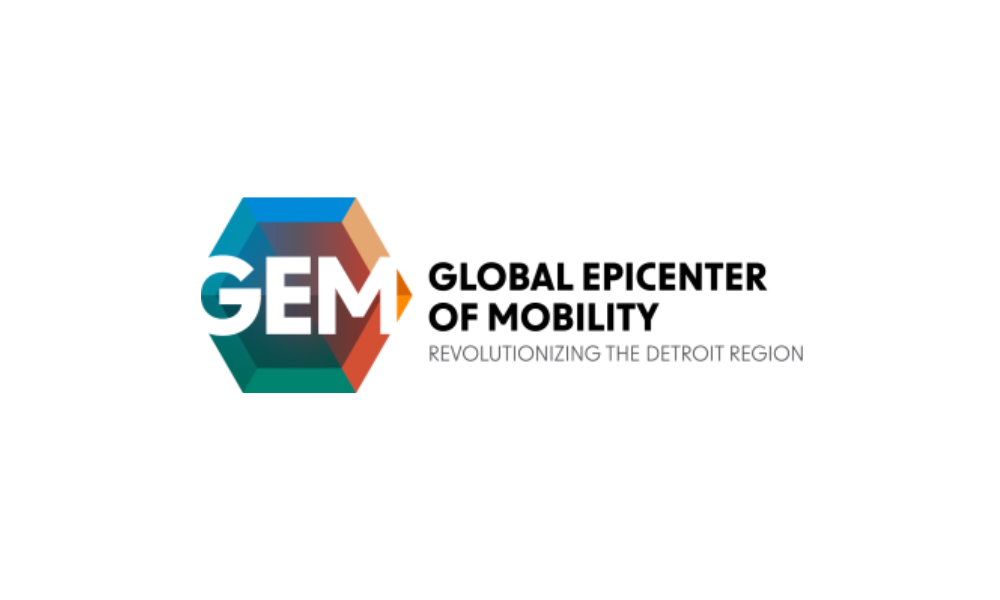If the Global Epicenter of Mobility’s first year in operation was all about setting the foundation for success, then year two was about seeing the fruits of those labors finally come to life.
More than 100 program partners, grant recipients and subrecipients who have benefitted from GEM’s efforts came together at GEM’s second annual meeting on October 21 to celebrate the results the ecosystem achieved in year two, with notable successes including:
- The initiation and launch of the Future Mobility Technology Study
- The addition of more than 30 new industrial sites into the Verified Industrial Properties (VIP) program
- GEM talent program support information shared with more than 240 businesses in the 11-county metro Detroit region
- Forty-six mobility products commercialized
- Conducting more than 300 mobility career consultations, enrolling more than 130 job seekers in training
- Exceeding the fiscal year goal of securing more than $140 million in venture capital investments
As GEM works to elevate the 11-county metro Detroit region’s mobility ecosystem and better position it for growth and investment in its mobility industry, these accomplishments are a testament to what the Detroit Region can offer. From talent and insights to training, entrepreneurial support and more, Detroit has real tools and resources available to move the mobility industry forward.
While those tangible resources are significant, discussions at the annual meeting also underscored the immeasurable benefits of setting up shop in the Detroit Region.
Keynote speaker Justin Tooley, director, American Rescue Plan at the U.S. Economic Development Administration, talked extensively about what makes the Detroit Region special and what sets it apart from other mobility hubs across the country.
“Detroit embodies the American values of hard work, innovation and resiliency,” Tooley said. “It’s undeniable. Detroit is a great American city. And it’s a global leader. You’re not debating the problem in Detroit. You know if you don’t innovate, then you’ll lose the future.”
During a panel discussion led by Jamie Butters, executive editor of Automotive News, panelists often came back to the intangibles that make the Detroit Region a great place to work, live and play – and why it’s a growing mecca for all things mobility.
“Everyone talks to everyone,” said Britany McGee, founder and CEO of OptimizeEV, a start-up focused on EV charging station optimization. “Business is hard, but if you’re persistent, you see people (in Detroit) really want to help startups grow and succeed.”
Josh Silets, co-founder and CEO of GridLink, which develops software solutions for EV fleet management, echoed those sentiments when talking about the collaborative nature of Detroit’s business community.
“Everyone is willing to work with others and say, ‘how can we support each other?’” Silets said.
While Silets is from the Chicago area, he said it “became very clear we needed to be in Michigan” to form relationships, gain critical access to data and insights from the organizations on the front lines of the EV transformation and take advantage of mentorship opportunities throughout the region.
The panelists often pointed to Detroit’s legacy in the automotive industry as a unique differentiator setting it apart from other mobility tech hubs, like Silicon Valley.
“Everyone in Detroit is in the know about what’s happening in the auto industry and wants to see it succeed,” Silets said.
Panelist Alexandria Day moved back to Detroit to pursue a career in the mobility industry after spending time in Chicago working in hospitality.
“I knew Detroit was on the come up, and I wanted to be part of it,” she said.
She took advantage of the ChargerHelp! Training program, funded by GEM to learn how to maintain EV charging stations. What really stuck out to her, however, was just how many existing skills she already possessed that were transferrable to her new line of work. Alex pointed to back-end payment systems she used while working in hospitality that are very similar to what’s on an EV charger.
“I had a baseline knowledge that I just needed to level up,” she said.
Day leveraged what she learned through the training program to become an EVSE Technician for VESCO Oil, where she aims to advance into a project management role where she can significantly contribute to the company’s growth in the emerging EV space.
For organizations and individuals working in metro Detroit, the experiences of Day, Silets and McGee should come as no surprise. But for others outside Michigan looking to get involved in mobility, the Detroit Region is clearly the epicenter of that work.
“This is Detroit,” said McGee. “We hustle hard.”
Watch the GEM 2024 Annual Meeting Highlights below.

